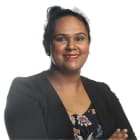Singapore residents to be invited to enrol with a family doctor as first line of care
SINGAPORE: Residents here will be invited to enrol with a general practitioner (GP) or polyclinic doctor of their choice as their first line of care from next year, the Ministry of Health (MOH) said on Wednesday (Mar 9).
The GPs and polyclinic doctors, also called family physicians, will support these individuals throughout their life for different health needs to ensure continuity of care, MOH said in a press release.
Speaking during his ministry’s Committee of Supply debate, Health Minister Ong Ye Kung said that MOH will probably start with people in their 40s and above.
“That is when chronic illnesses may start to set in. We will have to build up the participation base progressively,” Mr Ong said.
Residents will be enrolled based on where they live. Currently, close to nine in 10 residents visit a family physician or hospital near their home.
However, people can choose doctors far away from their home, MOH said, giving the example of those who continue to visit doctors from their childhood.
Even after enrolment, people can make changes when the need arises, for instance, when they move to a new house.
The initiative is a major part of a new strategy called Healthier SG which outlines a “major reform of the healthcare sector”, including the integration of GPs into the public healthcare ecosystem and focus on preventive care.
“Studies have shown that people who go to only one family doctor consistently are generally healthier and have fewer hospitalisation and emergency department visits,” Mr Ong said.
This is because the doctor and the care team know them well and can better detect early signs of any problems timely and accurately, he added.
Only three in five Singaporeans currently have a regular doctor, he noted.
The rest tend to doctor-hop, for instance, to one doctor for hypertension medicine and another doctor for a medical certificate for cough and cold, Mr Ong said.
“There is no one family doctor who knows our overall health condition and family health history well enough, to be able to see the link between different care episodes,” he said.
“We can leverage GPs to attend to more patients, not for coughs and colds, but devoting time to provide preventive care.”
COORDINATION BY HEALTHCARE CLUSTERS
MOH will partner the three healthcare clusters - National University Health System (NUHS), National Healthcare Group (NHG) and SingHealth - to support the GPs who are operating within their region and integrate them into the overall health system, such as by enabling data sharing and building up team-based care.
The national enrolment programme will be coordinated by the three healthcare clusters, with each cluster looking after a region of up to 1.5 million residents.
The clusters will work with GPs and other partners in the region to engage residents and strengthen care for them.
“Family physicians may work with the polyclinic or hospital in the management of patients with more complex needs,” MOH said.
MOH added that upon discharge, hospitals would refer patients to the family physician they are enrolled with, to ensure continuity of care.
“There could also be shared care between family physicians and specialists or other allied health professionals to jointly support patients based on their care needs.”
More details of Healthier SG are being worked out, MOH said.
Over the next few months, the ministry will consult stakeholders, including members of the public, GPs, healthcare workers and community partners, to gather their views.
It will then provide more details of Healthier SG in a White Paper and table it for debate in Parliament, it said, adding that it will share more details of the public consultation plans when ready.
CHANGE TO FINANCING OF HEALTHCARE CLUSTERS
MOH also announced it will move to a capitation model in its funding of the three healthcare clusters, in which NUHS, NHG and SingHealth will get a pre-determined fee for every resident living in the region that they are looking after.
“With this funding shift, there will be a natural incentive for hospitals to try to keep residents healthy through preventive care,” MOH said.
The new model will also allow them “greater latitude” to determine how they will support the residents, MOH added.
Currently, clusters are funded based on a workload-based model, which means funding is based on the volume of services they provide, such as the number of surgical operations and patient load.
“It’s to put the funding in the hands of the clusters, incentivising them to think of how they would save some of the funding,” MOH said, explaining the rationale for the change. It added that this could be by moving patients into other care settings that could possibly cost lower.
The scope of the model will be “progressively broadened as various aspects of clusters’ operations are ready”, the ministry said.
Complementing this new basis of funding is a set of key health outcomes, said Mr Ong. Some “salient indicators” include quality of care, uptake of healthy lifestyles and habits, prevalence of chronic illness and cost effectiveness of treatments, he said.
Under the new system, the absolute budgets of each healthcare cluster will not be affected, added Mr Ong.
“In fact, the budgets will go up a little bit. What will change is the basis of calculating the budgets,” he said.
MANPOWER AND TECHNOLOGY
To support the healthcare reform and shifts needed, MOH said it will invest further in manpower and build up “critical support pillars in technology and data”.
In terms of manpower, the Government has placed a strong emphasis on family medicine training and education in recent years, MOH said.
“We will explore further measures to ensure new graduates have a more broad-based experience,” it said, adding that post-graduate training in family medicine is also being strengthened.
The ministry will study how it can provide better data support for family physicians, such as giving them access to patients’ medical records and tools like clinical dashboards to better track their patient’s conditions and health trends over time.
To support this, MOH pointed to the National Electronic Health Record (NEHR) system it has been developing to synchronise information and enable access by the patients’ care team across settings.
New legislation, a Health Information Bill, will be put in place to govern this, MOH said.
“With more accessing shared data and handling individual records, there is a need to ensure and facilitate secured data sharing, and for users to take greater responsibility for data access,” MOH said.






